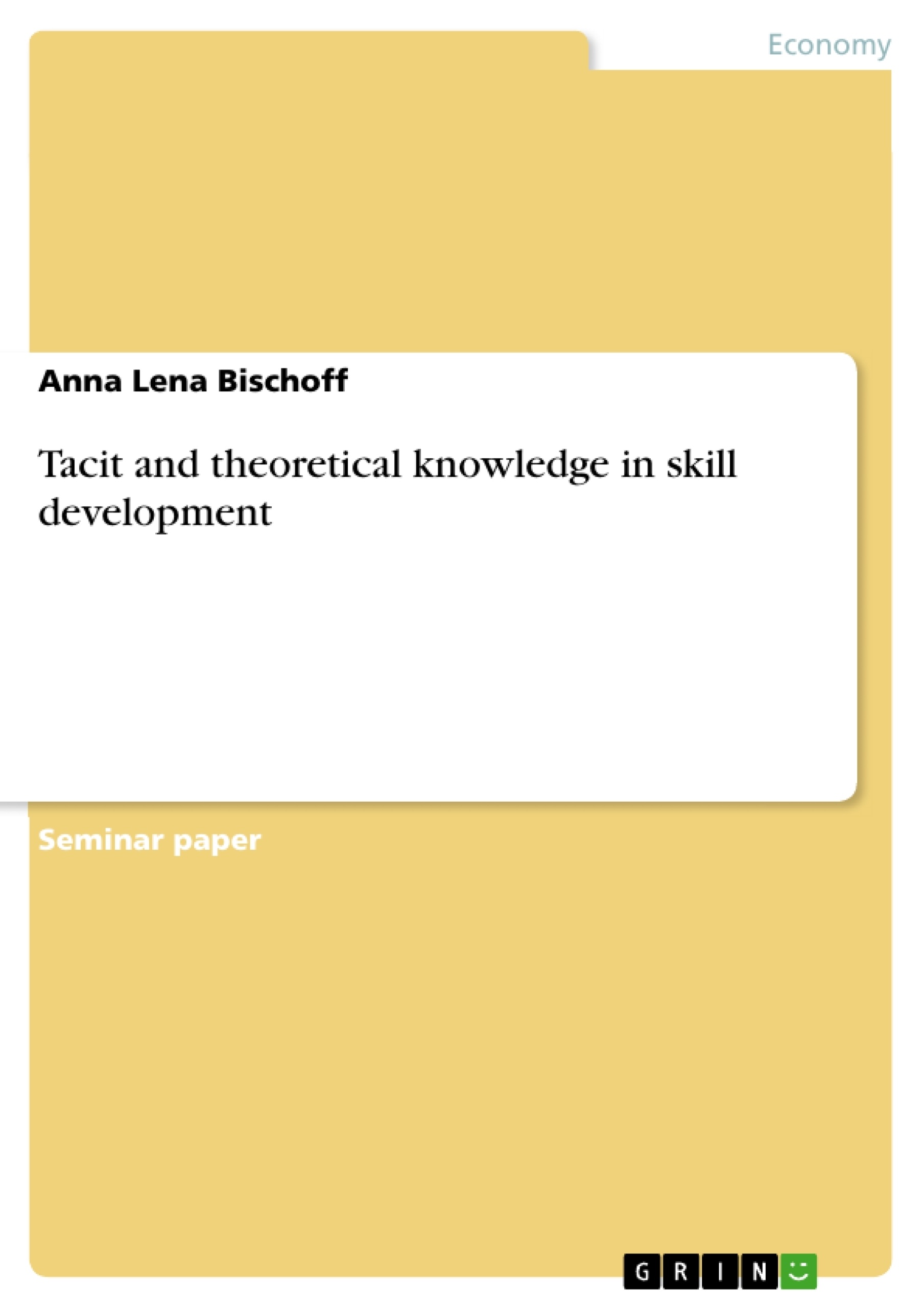The course describes the topics of tacit knowledge, the introduction to the area of Skill and Technology, makes distinctions between rules and the following of rules, between the abstract and the concrete, and problems and dilemmas in society from the perspective of professional skill.
Inhaltsverzeichnis (Table of Contents)
- Introduction
- Based on the Preface and Chapter 1 in „The Practical Intellect“ by Bo Göranzon (2009)
- Based on Chapter 2 in,,The Practical Intellect\" by Bo Göranzon (2009)
- Based on \"Tacit knowledge and risks\" by Bo Göranzon (2007)
- Based on \"The dream of the exact language\"\" by Bo Göranzon (1993)
- Based on “Literature, Language and Learning: Turing's Paradox and the Metaphor of Caliban” by Bo Göranzon (2009)
- Based on \"Is the Computer a Tool?\" by Bo Göranzon (2009)
- How the introduction of formal systems may eventually limit the field of view in a skill
- What does professional knowledge consist of?
- What is the purpose of a computer?
- Certainty and dialogue
- Conclusion
Zielsetzung und Themenschwerpunkte (Objectives and Key Themes)
This collection of reports aims to explore the relationship between tacit knowledge, technology, and professional skill development. The reports reflect on the work of Bo Göranzon, particularly his book "The Practical Intellect," and its insights into the role of computers and formal systems in shaping knowledge and work practices.
- The nature of tacit knowledge and its role in skill development
- The impact of computerization on work processes and the development of professional skills
- The relationship between theoretical knowledge, experience-based knowledge, and tacit knowledge
- The limitations and potential risks of relying solely on formal systems and theoretical knowledge
- The importance of understanding the interplay between human intellect and technology in shaping knowledge and skills
Zusammenfassung der Kapitel (Chapter Summaries)
The first chapter explores the impact of computerization on work and knowledge, highlighting the complexities of implementing computer systems effectively. The authors discuss the potential benefits of computerization, such as increased efficiency and accuracy, but also acknowledge the challenges associated with data input, system complexity, and the potential for reduced social interaction. The second chapter delves into the interplay between tacit knowledge and experience in practical work settings, using the example of forest workers' reluctance to adopt new computer-based tools. This chapter emphasizes the importance of human understanding and judgment alongside technological tools, arguing that computers can augment human abilities but cannot fully replace them.
The third chapter explores the different types of knowledge – theoretical, experiential, and tacit – and their interrelationship. The authors use the example of baking a cake to illustrate how all three types of knowledge contribute to successful outcomes. They argue that tacit knowledge plays a crucial role, often becoming more important with increasing experience, and that it is essential to acknowledge all types of knowledge for effective skill development.
Schlüsselwörter (Keywords)
Tacit knowledge, professional skill development, computerization, technology, work processes, theoretical knowledge, experiential knowledge, practical intellect, formal systems, limitations, risks, human intellect, judgment, social interaction, efficiency, accuracy, experience.
Frequently Asked Questions
What is tacit knowledge in skill development?
Tacit knowledge refers to the unarticulated, experience-based knowledge that professionals use in their work, which is often difficult to formalize or transfer through rules alone.
How does computerization affect professional skills?
Computerization can increase efficiency but may also limit a professional's field of view if formal systems replace human judgment and the nuances of practical intellect.
What is the "Practical Intellect" according to Bo Göranzon?
It is a concept that emphasizes the interplay between theoretical knowledge, experiential knowledge, and tacit knowledge in shaping professional expertise.
What are the risks of relying solely on formal systems?
Relying only on rules and formal data can lead to a loss of professional skill, reduced social interaction, and the inability to handle complex dilemmas that require human judgment.
Is the computer just a tool in the workplace?
While computers augment human abilities, they cannot fully replace the human understanding and judgment required in skilled professional work.
- Quote paper
- Anna Lena Bischoff (Author), 2016, Tacit and theoretical knowledge in skill development, Munich, GRIN Verlag, https://www.grin.com/document/336940



